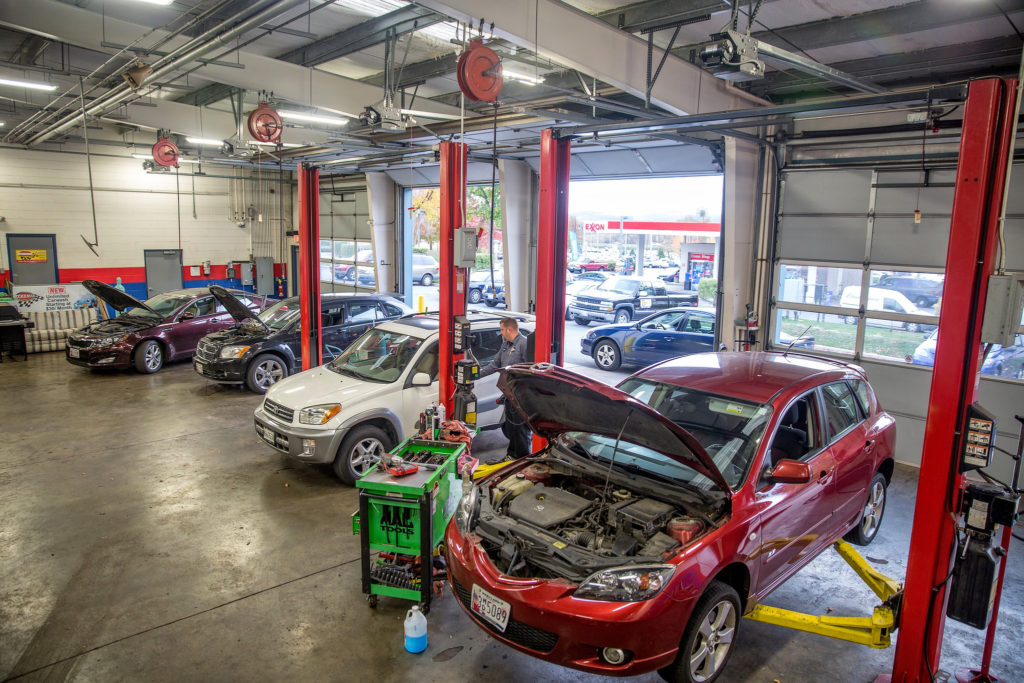All Categories
Featured
Normal engine tune-ups are vital for maintaining your lorry's performance, enhancing fuel performance, and prolonging its lifespan. Whether you're a seasoned cars and truck proprietor or a novice, understanding the crucial facets of an engine tune-up can help you maintain your vehicle running efficiently for many years. Below are some crucial ideas to lead you through the process.
- Modification the Flicker Plugs. Stimulate plugs are tiny but magnificent elements that play an important function in firing up the fuel-air blend in your engine. Gradually, they can break or become fouled, resulting in poor engine performance, minimized gas performance, and difficult beginnings.
Throughout a tune-up, evaluate your ignition system for wear and replace them as required. For the majority of automobiles, trigger plugs need to be changed every 30,000 to 100,000 miles, relying on the type and product. Fresh spark plugs guarantee efficient burning and smoother engine operation.
- Examine and Replace the Air Filter. The air filter is your engine's initial line of protection against dirt, debris, and other impurities. A blocked or unclean air filter can limit airflow, creating your engine to function more difficult and eat even more fuel.
Examine your air filter throughout a tune-up and change it if it's dirty or past its advisable solution period. A clean air filter improves engine effectiveness and improves fuel economic situation.
- Check the Fuel System. Over time, your gas system can gather dirt and carbon deposits, decreasing engine efficiency and fuel efficiency. Cleaning the gas injectors and fuel lines throughout a tune-up helps preserve proper gas delivery and combustion.
You can utilize a fuel system cleaner or have a professional mechanic execute a much more comprehensive cleansing. This action is specifically valuable for older vehicles or autos often driven in stop-and-go website traffic.
- Evaluate the Belts and Hoses. Belts and pipes are critical for numerous engine functions, such as running the alternator, water pump, and cooling. During a tune-up, check for splits, fraying, or indications of wear on these elements.
Change any type of worn-out belts and tubes to avoid potential malfunctions. A busted belt or dripping pipe can cause engine getting too hot or loss of power, so resolving these problems promptly is essential.
- Replace the Engine Oil and Oil Filter. Engine oil is important for oiling moving components, reducing rubbing, and controling engine temperature. Over time, oil becomes contaminated and loses its effectiveness.
As component of a tune-up, change the engine oil and oil filter. Use the sort of oil advised by your car's maker and stay with the recommended change intervals. Tidy oil keeps your engine running efficiently and avoids premature wear.
- Test the Battery and Charging System. A healthy battery is important for starting your cars and truck and powering its electrical systems. Throughout a tune-up, check the battery's voltage and inspect the terminals for rust. Tidy the terminals if needed and ensure a protected connection.
Furthermore, examination the generator and charging system to ensure your battery remains charged throughout operation. If your battery is weak or old, consider replacing it to prevent unforeseen breakdowns.
- Flush and Refill the Coolant. The air conditioning system controls your engine's temperature level, stopping it from overheating. Old or polluted coolant can lose its performance, bring about prospective engine damages.
During a tune-up, flush the old coolant and change it with a fresh mixture. Likewise, inspect the radiator, thermostat, and hoses for leakages or damage. Keeping the air conditioning system in excellent problem ensures your engine operates at the ideal temperature.

- Address Warning Lights and Uncommon Signs And Symptoms. Modern lorries are equipped with analysis systems that inform you to possible issues via dashboard warning lights. If your check engine light or any other advising indications are on, resolve them throughout your tune-up.
In addition, take note of unusual symptoms such as unusual noises, harsh idling, or lowered fuel efficiency. An expert technician can identify and fix these troubles during the tune-up process.
- Do Not Forget the Exhaust System. Your auto's exhaust system eliminates harmful gases from the engine and makes sure appropriate emissions. Inspect the exhaust system for leaks, rust, or damages during a tune-up. A malfunctioning exhaust system can affect engine efficiency and lead to environmental and safety and security problems.
- Use High-Quality Components and Fluids. When changing parts or rounding off liquids during a tune-up, always go with high-quality products that fulfill your automobile's requirements. Using substandard components or incorrect liquids can adversely affect your engine's efficiency and long life.
Final Thought: Normal Tune-Ups Are Secret to Engine Health And Wellness. Making the effort to tune up your engine guarantees it runs efficiently, conserves gas, and reduces the risk of break downs. Whether you execute these tasks yourself or rely upon a trusted technician, regular tune-ups are an investment in your car's reliability and longevity. Adhere to these ideas, and you'll appreciate a smoother, much more reliable trip for several years to come.
Latest Posts
Smooth Aluminum Seamless Gutters: The Smart Choice for Your Home
Join WyHy FCU – Top Benefits for Your Money Goals
Learn Why Chicago Drivers Prefer Montclare Auto Repair for Reliable Service and Huge Savings
More
Latest Posts
Smooth Aluminum Seamless Gutters: The Smart Choice for Your Home
Join WyHy FCU – Top Benefits for Your Money Goals
Learn Why Chicago Drivers Prefer Montclare Auto Repair for Reliable Service and Huge Savings